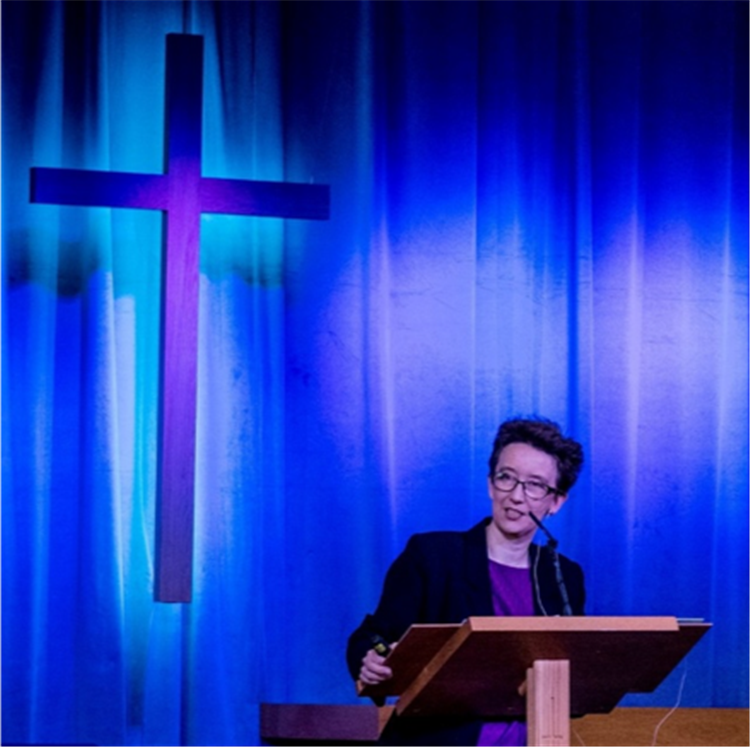Whitley lecture tour 2018: looking back and forwards

It was a privilege to be able to take the Whitley lecture on tour around the country this year. I was invited to speak at 16 venues – ranging from colleges to churches to a golf-course – to around 600 people in total. I enjoyed warm and generous hospitality everywhere I went, and appreciated meeting old friends and making new ones.
After each lecture, I took (I won’t say ‘answered’, necessarily) questions from the audience. Certain themes occurred again and again:
What about the places in the Old Testament where God commands violence? This is a question I did not even try to answer in the lecture, as it is far too big to try to address in 50 minutes. However, it is clearly a very important question in the UK church at this time, and I am making some attempt to respond to it – of which, more below.
How do we read these stories with our children? I’m so pleased to be asked this question, because traditionally in church we have taught our children biblical stories of violence without a second thought about the victims, or the effect that such stories might have on young minds. It’s not an easy question to answer, and I absolutely do not want to suggest that we excise these narratives from our churches and Sunday schools. I do think that part of the answer might be to ensure that they are told as part of the large story of the Bible. In this way, rather than being stand-alone tales of conquest and death, they can be seen in the context of (for example) a story where Israel loses the land as well as conquering it.
Can we really use the texts of sexual violence in our churches on a Sunday morning? Can we really use the texts of sexual violence in our churches on a Sunday morning? Yes, absolutely, and this can bring great dignity and healing to those who have suffered such violence. Clearly, however, this is best done in the context of a regular ministry and a pastoral concern for, and knowledge of, the congregation.
This lecture tour was, for me, part of an ongoing strand of research in the broad area of Bible and violence. I’m delighted that during the year two new developments have emerged, which I am very excited about.
-
During the course of this year I have written a book, for release next year, which is aimed at thinking Christians who don’t necessarily have theological training. Entitled ‘God of violence yesterday, God of love today?’, it aims to grapple with the violence of the Old Testament, and provide some pointers to how we might think about it. It is not, of course, a final word on the subject – it is probably not even myfinal word on the subject, but it is an attempt to contribute to the conversation. The book will be published by BRF in May 2019. (The content is quite different to the subject of the lecture.) I also whole-heartedly endorse John Walton’s ‘Lost World of the Israelite Conquest’, which brings a very helpful perspective to some of these texts.
-
At Bristol Baptist College, where I work part-time, we are setting up a Centre for the Study of Bible and Violence. This will provide opportunity for postgraduate study and research for those who have an academic interest in the subject. With the wonders of modern technology, they don’t even need to live in the UK! Alongside this academic aim, the Centre will aim to produce resources for the churches to promote confidence in the goodness of God and the value of the Old Testament; and in order to equip the church in the UK and overseas to offer a biblically faithful counter-violence, counter-extremist narrative in situations of tension and conflict. If you would be interested in the work of the Centre in any way, do get in touch.
In my view, the texts of violence in the Old Testament comprise one of the pressing issues facing the church today. This impression has been reinforced by the turnout and comments I have received on my lecture tour. I believe it is vital that we recover our confidence in the value of the Old Testament; that we stand upon the absolute assuredness of the goodness of God; and that we learn to interpret our Old Testaments in ways that do not endorse violent action in our own time.
The written version of Helen’s Whitley lecture can be purchased from
Amazon here .
This blog is part of series, please click here to read more.
For more about the Whitley lecture.
The 2017 Whitley Lecture is entitled the
The Pioneering Evangelicalism of Dan Taylor (1738-1816) by Richard Pollard, Minister and Team Leader, Fishponds Baptist Church, Bristol. It is available from
Regent's Park College.
The 2016 Whitley Lecture was
Church Without Walls: Post-Soviet Baptists in the Ukranian Revolution 2013-14 by Joshua Searle, Tutor in Theology and Public Thought and Assistant Director of Postgraduate Research at Spurgeon's College
.